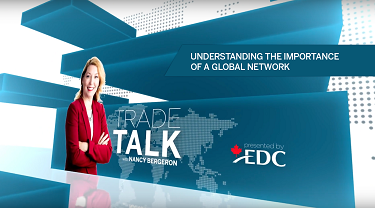My first tip is to be deliberate and make a plan, especially when you’re going into new markets. For example, trade missions and conferences are great, but weigh when and where to go, and which conferences and missions to attend. Many small and medium businesses don’t spend enough time researching these events and end up wasting time and money they could have put to better use. Picking the right mission is critical, as is getting the right information on conferences.
At a conference where your industry peers are, you’ll get a lot of service providers and you may find some distributors and agents who may be helpful, but it’s also important to attend conferences that require you to get out of your comfort zone. For example, if you make mobile medical clinics, it might serve you well to go to a disaster-relief or emergency-preparedness conference. The main thing is to think about where your potential customers are gathering. This can be a broad customer definition or targeted and narrow (especially if your value proposition in that market isn’t quite clear yet.)

